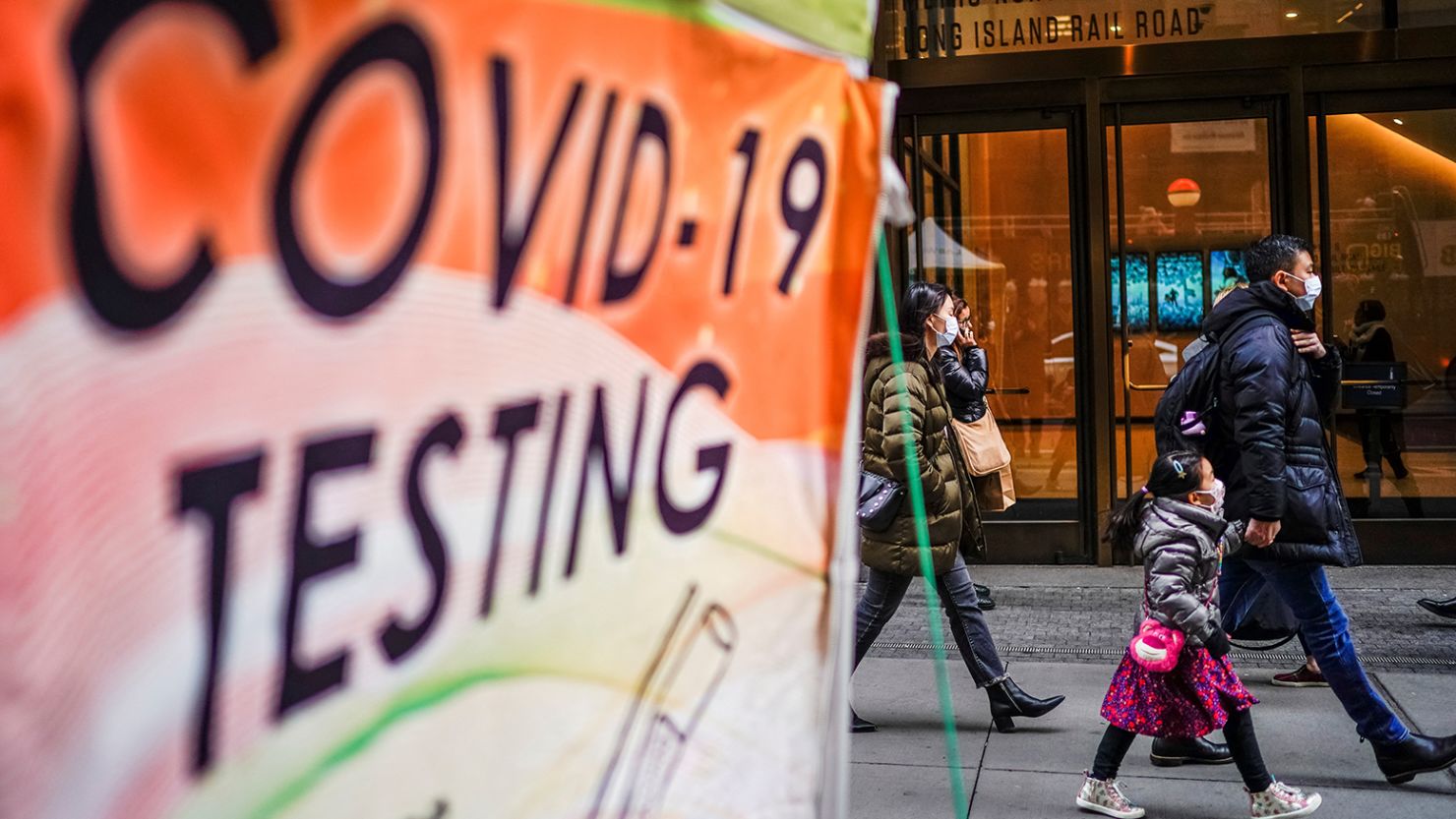For Americans across the country preparing to gather and socialize with family and friends during the end-of-year holiday season, the White House has a clear warning: Covid-19 is not over, and you had better protect yourself.
In an interview with CNN laying out the White House’s launch of a new public campaign on Thursday aimed at preparing Americans ahead off what is expected to be a continued rise in Covid-19 cases this winter, White House Covid-19 response coordinator Dr. Ashish Jha stressed that the stakes are even higher as the United States confronts a trio of threats.
“This is not one disease in isolation,” Jha said, referring to the ongoing wave of Covid-19, respiratory syncytial virus (RSV) and influenza. “The stress on hospitals and stress on health care workers is because of all the respiratory pathogens. So we are very aware that this increase that we’re seeing in Covid is in that context of one of the worst flu seasons in a decade and RSV that was quite bad.”
Evidence suggests, however, that RSV has “peaked,” Jha said, with case numbers starting to come down “pretty quickly.” Still, it will be a while before the impact of the virus is diminished, he said.
The Biden administration’s renewed push to encourage people to use all of the necessary tools available to keep Covid-19 at bay – getting vaccinated and boosted, making use of tests and treatments and masking up when necessary – are all part of achieving what Jha said is the White House’s ultimate goal: preventing serious illness, hospitalizations and death.
As a part of its new push, the administration is restarting the free at-home Covid-19 test program, permitting each American household to order up to four free tests this winter from COVIDTests.gov. It is also offering federal resources to local health departments, putting an extra focus on high-risk individuals including by providing a winter playbook for nursing homes and other long-term care facilities, and permitting nursing home staff to administer vaccinations.
Jha declined to predict how many Covid-19 cases there might be this winter, but said data from the past few weeks make clear that numbers have been on the rise, likely driven in part by indoor gatherings during the Thanksgiving holiday and the beginning of the winter holiday season.
“If somebody gets vaccinated tomorrow, they will have some protection by Christmas. But it’s not like Christmas Day is the last day people socialize over winter,” Jha said. “So getting vaccinated as quickly as possible so you have protection for as much time as possible, is critical.”
There are currently specific and more conservative guidelines from the CDC for what an individual should do if they test positive for Covid-19, including isolating from others, than for if one catches the flu or RSV. Jha said that has to do with the fact that the spread of RSV and the flu largely happens when a person is symptomatic, whereas Covid-19 can be transmitted a lot more even when a person is asymptomatic.
He is encouraging Americans to follow this simple rule of thumb, whether you have Covid-19 or something else: “If you are feeling sick, you should stay home.”
In other words, don’t cough your way through a family holiday dinner even if you don’t believe you have Covid-19: “You don’t know what virus you have and there’s no value in spreading it to other people,” Jha said.


